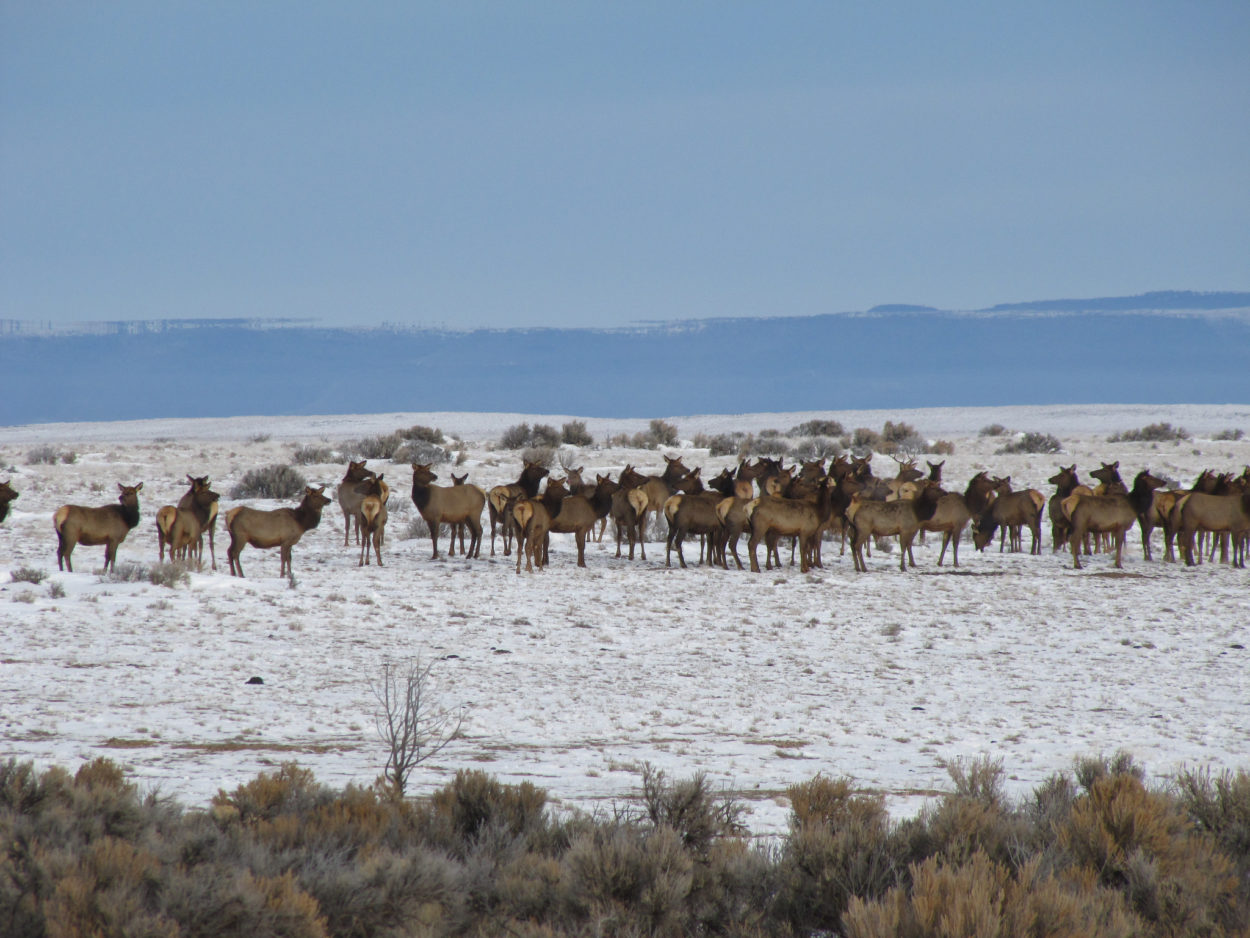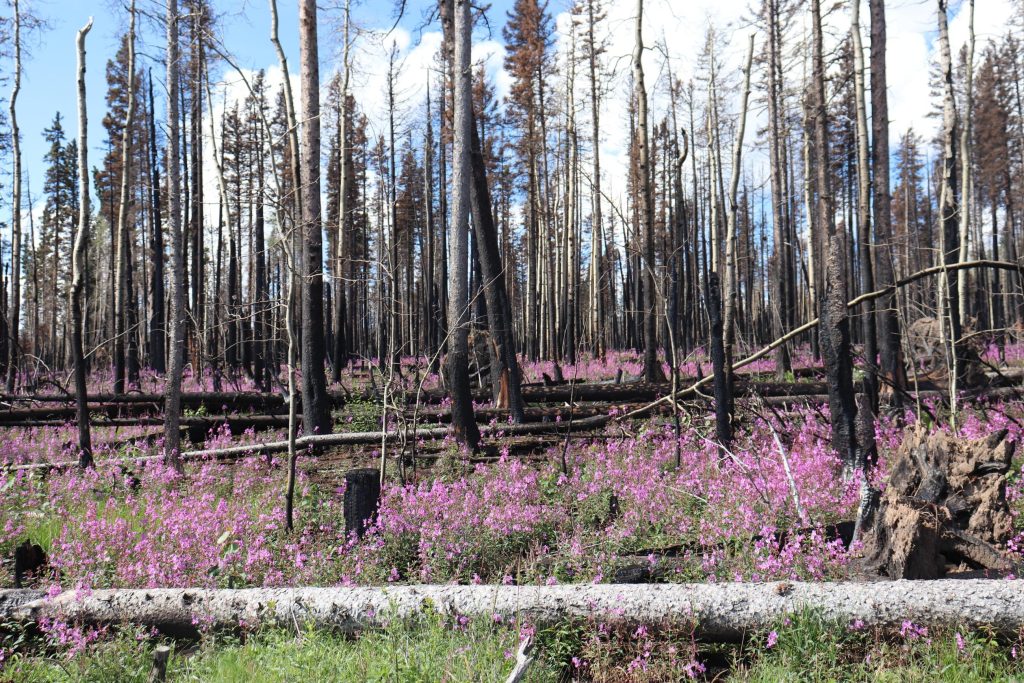Nearly a year after President Donald Trump’s inauguration, the agency that manages 246 million acres and that is critical to the functioning of the American West still has no permanent leadership. In November, Brian Steed, the former chief of staff for Utah State Rep. Chris Stewart, R, became the third person in 11 months to temporarily take on the duties of Bureau of Land Management acting director. One potential pick for the director job is Karen Budd-Falen — a long-time antagonist of the bureau. In other administrations, her background would make her an unlikely pick. In the Trump administration, she’s a contender.
Budd-Falen is a polarizing figure in the West. She is one of the region’s preeminent property rights lawyers, known for representing ranchers in disputes with federal land agencies like the BLM and U.S. Forest Service.
By the time she was 32, in 1991, Newsweek had dubbed Budd-Falen the “hired gun of choice for ranchers facing court action from federal agencies.” That reputation has only grown; her supporters say she’ll bring positive change to the BLM to curb federal overreach fueled by environmentalists. “Karen will certainly take a look at multiple use from a different set of glasses than previously administrations have,” Utah Cattlemen’s Association Executive Vice President Brent Tanner said. “One of the advantages of Karen … is she has based her career around the legal issues affecting livestock grazing on public lands.”
Critics say Budd-Falen is anathema to the stated mission of the BLM, which is to manage land for multiple uses, not just for ranching or the extractive industry. The attorney has long been a harsh critic of the agency she would lead. “Karen Budd-Falen has attacked the Bureau of Land Management over and over, and now she is trying to secure the top post,” said Land Tawney, director of Backcountry Hunters and Anglers. “This tragic irony must not be ignored.”
It’s not just Budd-Falen’s apparent disposition to the mission of the BLM, critics say. Her history would follow her to the agency and could be an added challenge. “I think first and foremost she would have a significant perception challenge with public lands stakeholders,” said Bob Abbey, who served 34 years in state and federal government and was the BLM director from 2009 to 2012. “It will take her months to earn the respect and trust within the organization and among public lands stakeholders. … I don’t think she’s the right person for the job right now.”
Budd-Falen is a fifth-generation Wyoming resident, originally from Big Piney, population 521. Her family members have long been active in Western politics on the side of the Sagebrush Rebellion. Her father, Dan Budd, a rancher who served in the Wyoming legislature from 1981 to 1992, opposed the foundational 1976 Federal Land Policy Management Act, in part because it allowed the BLM to retain vast acreages instead of continuing to pass the land into private ownership, as had been the previous policy since the 19th century.
Budd-Falen earned undergraduate and law degrees from the University of Wyoming. After law school, she worked as a lawyer at the Denver-based Mountain States Legal Foundation, a non-profit founded in 1976 as part of a wave of conservative resistance to new environmental laws, such as FLPMA and the Endangered Species, Clean Water and Clean Air Acts. She served as a law clerk to the assistant solicitor for Water and Power and in the office for land and minerals, both at the Interior Department under former President Ronald Reagan. More recently, she was part of Trump’s Interior transition team. She now lives in Cheyenne and co-owns a law firm with her husband, Frank Falen, which focuses on property rights.
Federal land management
Budd-Falen has not publicly taken a stance on the conservative Western movement to transfer federal land to state control. But in November she spoke at a public event in Hamilton, Montana, that also featured a presentation from Republican State Sen. Jennifer Fielder. Fielder is the head of the American Lands Council, a non-profit whose mission is to transfer lands from the federal government to the states. (In an interview, Budd-Falen told High Country Newsshe didn’t know that Fielder would be speaking at the event.) That appearance is one of many examples critics say explain her position on federal land management. “(Budd-Falen) may say she has no opinion on (land transfer) but her career has been spent propping up that ideology,” Greg Zimmerman, deputy director of the progressive nonprofit Center for Western Priorities, said.
For her part, Budd-Falen said she understands that the notion pushed by many land transfer advocates, that the federal government can’t legally administer land in the West, is not upheld by the courts. “Supreme Court rulings have very clearly said… the federal government can hold these federal lands,” she said. “Until you get the Supreme Court to change its mind, then that’s the current interpretation of the Constitution.” When asked if she agreed with that interpretation, Budd-Falen said she did. The Wyoming attorney also said it would be too costly for her home state to take on managing all of its federal lands. “I don’t think it’s feasible,” she said.
On the topic of national monuments, however, Budd-Falen has lauded Trump and Interior Secretary Ryan Zinke for their 2017 review of designations over 100,000 acres. “I think there is enough land out there, and people are smart enough, that we can have multiple-use and still protect the land (without large monuments),” she told Fox News in May. At the Montana event in November, she criticized the Obama Administration’s monument designations: “If you read the Antiquities Act, it says you are to designate the smallest area possible to protect the artifact you are trying to protect. I looked at Bears Ears and Grand Staircase-Escalante, surely that’s not the smallest area possible to protect these things,” she said. As head of the BLM, Budd-Falen would oversee both monuments, which public lands advocates say were essential to protecting valuable scientific and cultural resources.
Property Rights
The importance of property rights is foundational to Budd-Falen’s worldview. In 2011, at a Constitutional Sheriffs panel event in Yreka, California, she said that all rights in the U.S. Constitution are “based on the right of ownership of private property.” This interpretation stems from an established school of thought in which property rights hold a supreme position in the Constitution, says Gregg Cawley, a professor of environmental politics at the University of Wyoming. In this view of the Constitution, Cawley says: “‘Property’ was a kind of short hand symbol for everything an individual needed to live their life as they wanted…. a ranch is ‘property’ in the sense of land but (that ranch) is also a means for the owners to secure their ‘rights’ to ‘life, liberty, and the pursuit of happiness.’”
This exalted view of property rights inspires Budd-Falen’s work in defense of ranchers. She has spent much of her career defending ranchers’ rights to water, easements, and grazing federal land. Early in her career, Budd-Falen took on a client who is now one of the West’s most notorious cattlemen, Cliven Bundy of Bunkerville, Nevada, over a grazing rights dispute. Bundy is now known for leading an armed standoff against federal agents in 2014 over his illegally grazing cattle. Back in the early 1990s, he was just one of about a dozen southern Nevada ranchers Budd-Falen represented in court.
After the Mojave desert tortoise was listed under the Endangered Species Act, the BLM required southern-Nevada ranchers remove their cattle from sensitive habitat. Budd-Falen fought the agency in court and won. But the BLM made the same demand the following year, and ranchers (all except Bundy) decided to take buy-outs or move their operations elsewhere. Budd-Falen worked with the ranchers during that process. Ultimately, she said, “I am completely satisfied with what happened.” She added that her job was to “make sure that when the BLM and the county approached these ranchers, they weren’t forcing someone to sell or move who really didn’t want to.”
County supremacy
Local input on land use plans has long been a Budd-Falen bailiwick. She advocates for city and county officials to have more opportunity to influence management of federal resources — a cause many Westerners get behind. (When she’s not representing individuals in the courtroom, Budd-Falen spends about a third of her time advising Western counties on land use plans.) Budd-Falen’s opponents say some tactics she deployed to achieve that goal come close to giving counties too much power over federal decisions and dangerously echo her work in the early 1990s, in what’s known as the “county supremacy movement.”
Budd-Falen has been a leader in that movement, which suggested that the authority of local officials could trump federal agencies, even on federally managed land. The movement was very active in Catron County, New Mexico, where Budd-Falen helped write ordinances later replicated in counties across the West. Her model plan stated that, “Federal and state agents threaten the life, liberty, and happiness of the people of Catron County” — a viewpoint much decried by her critics. Nada Culver, director of the Wilderness Society’s BLM action center, called that view “irreconcilable with the BLM’s obligation and authority to manage the public lands for all Americans.” Culver also said in an email: “While the BLM is required to give local governments a seat at the table (and does so), the agency is also required to take into account the input of other agencies, to consult with sovereign Tribal nations and to consider public comment. Listening only to counties would undermine the BLM’s responsibilities.”
Budd-Falen’s county-centric views also resemble the “constitutional sheriff” ideology, which describes elected sheriffs as the supreme law of the land, beyond the federal government’s control. Sheriffs who hold this view often butt heads with federal land agencies in the rural West. Critics of Budd-Falen say putting a constitutional-sheriff sympathizer in charge of one of their main adversaries, the BLM could embolden a growing set of anti-government militia to defy federal law.
Her supporters, however, say Budd-Falen’s views could actually bring balance to law enforcement beefs. Brent Tanner of the Utah Cattlemen’s Association said having Budd-Falen at the helm of the BLM could be a boon to ranchers at odds with BLM rangers. “There will be a less volatile spirit between any confrontations that come along,” Tanner said. “If there’s a problem and a local sheriff comes up… generally the local people will say, ‘OK.’ But if you get a mandate from a federal individual you don’t know, it puts up more of a barrier and creates a different feeling.”
Professor Cawley also predicts Budd-Falen could have an ameliorative effect on ranchers’ interactions with federal law enforcement, but for different reasons. Historically during periods of conservative leadership at the Interior Department and BLM, the Sagebrush Rebellion has quieted, which could happen under Budd-Falen. “I think it leads to a reduction in some of the conflict and the tension because ranchers are of the impression that the federal officials now are more sympathetic to their interests,” Cawley said.
There’s a lot still undecided about the immediate future of the BLM. Zinke has said the agency will undergo a “bold restructuring,” though it’s not yet clear what that will mean. Rumors have circulated about possibly moving BLM headquarters to the West and even changing its management organization away from states and aligned with watersheds, E&E News in December.
In response to questions about when to expect a permanent BLM director, Heather Swift, an Interior spokesperson said last month, “the department has nothing to announce on nominations at this time.” For now, Budd-Falen still has an outside chance of being nominated to a position. She told E&E News she would was torn about the idea of leaving Wyoming to oversee the BLM. “If the president and the secretary of Interior were to ask me to serve,” she said, “I’d have to seriously, seriously consider that.”
Tay Wiles is an associate editor at High Country News and can be reached at [email protected].






















